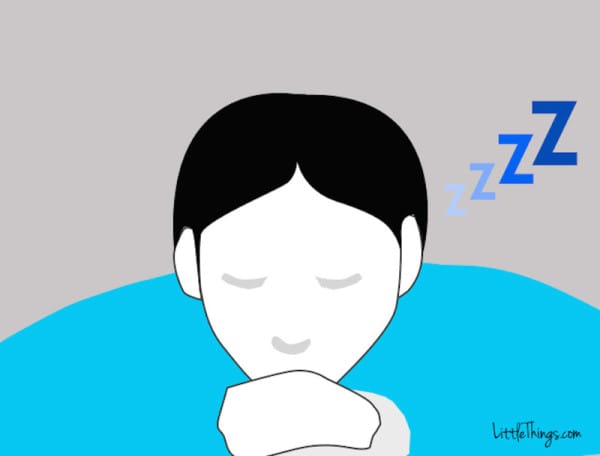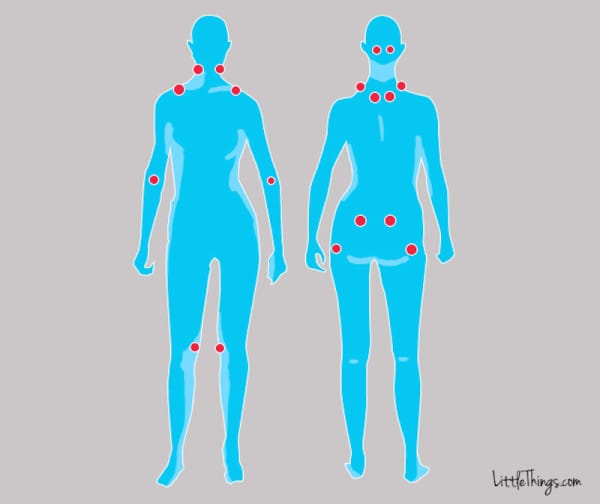Sure, the word “gluten” has become somewhat of a buzzword lately — but gluten intolerance isn’t just a fad.
Despite what many people may think, gluten intolerance isn’t a food allergy and does not signify celiac disease. Rather, it’s a condition in your gut, and it can have a negative impact on one’s overall lifestyle and well-being.
According to Food Renegade, “undigested gluten proteins (prevalent in wheat and other grains) hang out in your intestines and are treated by your body like a foreign invader, irritating your gut and flattening the microvilli along the small intestine wall. Without those microvilli, you have considerably less surface area with which to absorb the nutrients from your food.”
We know that debilitating pain, vomiting, and diarrhea after eating are surefire signs of a serious gastrointestinal condition — but when looking at gluten intolerance, many of these universal signs may sound quite general and vague. However, those who remain undiagnosed may continue to eat gluten for the rest of their lives, putting themselves at risk for autoimmune and other diseases, along with a wide array of exhausting, frustrating, and uncomfortable symptoms.
Scroll down to see eight common signs of gluten intolerance, and please make sure to consult your doctor if you’re experiencing severe forms of any of the following symptoms.
1. STOMACH PAIN
Digestive issues are perhaps the most obvious sign of gluten intolerance. After eating foods containing gluten, you may often experience gas, bloating, diarrhea, and constipation. According to Digestion Relief Center, eating foods that contain gluten can damage the lining of the small intestine, and can lead to poor absorption of minerals, vitamins, and most of the food you eat.
2. DIZZINESS
Many people with gluten intolerance experience brain fog, disorientation, and a strange feeling of being off-balance after consuming foods made with gluten — but they fail to connect the dots.
That frequent feeling of cloudiness isn’t normal, and by eliminating gluten from your diet, you may feel that cloud lifted. Some people have actually seen a decrease in vertigo attacks after cutting gluten from their diet.
3. MOOD SWINGS
Think about it… If your gut is unhappy with the foods you eat, then your brain will be, too. People with gluten intolerance often find themselves unexplainably irritable, anxious, or upset.
The New England Journal of Medicine listed 55 diseases caused or exacerbated by eating gluten, which included depression and anxiety.
4. CHRONIC MIGRAINE
Headaches are highly common for people with gluten intolerance. While it’s not associated with one specific type of headache, the pattern typically occurs within 30 to 60 minutes after eating.
Frequent migraines can also lead to blurry vision and pain around the eye sockets.
5. ITCHY SKIN
When your intestines have trouble processing gluten, they become inflamed, which can outwardly “reveal” itself through the skin. That’s why gluten sensitivity is often associated to skin conditions, like eczema and psoriasis. The immune system responds to an unhappy digestive system by creating antibodies that can cause dry, itchy skin.
These symptoms may result in many sleepless nights spent scratching at your knees, elbows, fingers, and/or shins.
6. FIBROMYALGIA
Fibromyalgia is a chronic condition that causes widespread pain in your muscles, ligaments, and tendons. It affects about 4 percent of the U.S. population, and mostly women.
According to many health professionals, avoiding gluten can alleviate fibromyalgia. As Medicine Net reports, rheumatology experts like Alex Shikhman, M.D., believe the diversity of dietary approaches may have less to do with the impact on fibromyalgia, and more to do with treating a secondary, possibly undiagnosed illness. “When patients are helped by a specific dietary measure, it is often because of the presence of a secondary condition that does have a recognized response to diet. And when you take care of that, you do get some relief from all the symptoms. You feel better overall.”
Makes sense, right?
7. CHRONIC FATIGUE
It also makes total sense that if your body is out of whack and your mind is up and down, you’d also feel tired and exhausted. Even if you get eight to nine hours of sleep, you may still wake up feeling drained; this can signify a much bigger problem.
When your body is always inflamed and spending its energy on trying to deal with unwanted gluten proteins, then your energy will be spent much quicker and easier than normal.
8. LACTOSE INTOLERANCE
Gluten and dairy intolerance have very similar symptoms, and sometimes the two go hand-in-hand. This is probably the most surprising sign of gluten intolerance, but it’s a big one.
If lactose is already a dietary issue for you, then chances are gluten is, too. There’s a specific type of sugar found in milk and other dairy products that can trigger digestive issues and add on to the already uncomfortable symptoms of gluten intolerance. Dairy foods are also a common trigger for acid reflux, which is also linked to gluten intolerance.













